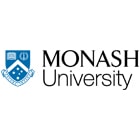- ព័ត៌មាន និងអត្ថបទផ្សេងៗ
- Find usIDP AustraliaIDP BahrainIDP BangladeshIDP CambodiaIDP CanadaIDP ChinaIDP EgyptIDP GhanaIDP Hong KongIDP IndiaIDP IndonesiaIDP IranIDP JordanIDP KenyaIDP KoreaIDP KuwaitIDP LebanonIDP MalaysiaIDP MauritiusIDP Middle EastIDP NepalIDP New ZealandIDP NigeriaIDP OmanIDP PakistanIDP PhilippinesIDP Saudi ArabiaIDP SingaporeIDP Sri LankaIDP Taiwan, ChinaIDP ThailandIDP TurkeyIDP UAEIDP VietnamIDP Corporate
- Social
- ភាសាខ្មែរ
- Where we operate
- Courses
- Scholarships
- IELTS
- About IDP
- សេវាកម្មពេលមកដល់
- ព័ត៌មាន និងអត្ថបទផ្សេងៗ
- Find us
- Find us
- Find nearest IDP offices
- IDP Australia
- IDP Bahrain
- IDP Bangladesh
- IDP Cambodia
- IDP Canada
- IDP China
- IDP Egypt
- IDP Ghana
- IDP Hong Kong
- IDP India
- IDP Indonesia
- IDP Iran
- IDP Jordan
- IDP Kenya
- IDP Korea
- IDP Kuwait
- IDP Lebanon
- IDP Malaysia
- IDP Mauritius
- IDP Middle East
- IDP Nepal
- IDP New Zealand
- IDP Nigeria
- IDP Oman
- IDP Pakistan
- IDP Philippines
- IDP Saudi Arabia
- IDP Singapore
- IDP Sri Lanka
- IDP Taiwan, China
- IDP Thailand
- IDP Turkey
- IDP UAE
- IDP Vietnam
- IDP Corporate
- Social
- ប្តូរភាសា
- ស្ថាប័នអប់រំ IDP /
- សាកលវិទ្យាល័យ /
- Australia /
- Monash University /
- Bachelor of Arts and Bachel...


ទីតាំង
Australia
លក្ខណៈសម្បត្តិ
Dual Degree
ថ្លៃសេវា
AUD39000
(2025)
រយៈពេល
4 Year(s)
កាលបរិច្ឆេទបន្ទាប់
03 March 2025
ពិន្ទុចូល
6.5
IELTSCOURSE_INFO
International relations as a discipline was founded after World War I and has evolved over the course of the 20th and 21st centuries. However, its core purposes remain the same: to explain seemingly intractable global problems and the political nature of responses to them, and to consider whether there are global responsibilities. The discipline advances critical knowledge about the causes, consequences and challenges of mitigating conflict and promoting cooperation within and across states and societies. It is concerned with the relationships between international structures, processes and political institutions including states, non-government organisations (NGOs), social movements, and international organisations such as the United Nations and its specialised agencies, the World Trade Organisation, NATO, and the European Union. Concepts of power, sovereignty, security and the state are central to the subject matter of international relations. You are encouraged to develop critical thinking, creativity, team work, research-based learning and analytical writing skills in order to understand contemporary changes and historical continuities in international relations. International relations at Monash aims to offer you an understanding of many aspects of contemporary global politics and economics, coupled with a solid intellectual grounding in the key debates, historical events, and political institutions in which the discipline is immersed. The international relations major at Monash focusses on four broad areas: international security studies, global governance, international political economy and foreign policy.
- អាហារូបករណ៍ មើលអាហារូបករណ៍ទាំងអស់
- កម្មសិក្សា
ENTRY_REQUIREMNET Monash University
GCE A Level 9
International Baccalaureate Diploma Programme -28
IELTS - 6.5 (Reading - 6.0, Listening - 6.0, Writing - 6.0, Speaking- 6.0)
Paper-based TOEFL – 550 (Test of written English - 4.5)
TOEFL iBT -79 (Reading- 13, Listening- 12, Writing: 21, Speaking- 18)
កាលបរិច្ឆេទ កំណត់ ពាក្យ ស្នើ សុំ
ថ្ងៃផុតកំណត់នៃការដាក់ពាក្យគឺមិនមានទេ។ ពិភាក្សាជាមួយអ្នកប្រឹក្សា IDP សម្រាប់ព័ត៌មានលម្អិតបន្ថែម
Further information
If you aren't eligible for the above entry requirements, you might ant to explore pathway options at Monash University. If you want to find out more, speak to our counsellors.
ចំណាត់ថ្នាក់ពិភពលោក
58th / 1250
ចំណាត់ថ្នាក់ពិភពលោកសិស្សរបស់ពួកយើងគិតយ៉ាងណាដែល
យើងមិនទទួលបានការពិនិត្យណាមួយសម្រាប់សាកលវិទ្យានេះនៅឡើយ។
ត្រូវបានណែនាំសម្រាប់អ្នក
- បរិញ្ញាបត្រ
- Australia
- DEADLINE: 07 Jan 2025
- ប្រភេទមូលនិធិ: Fee waiver/discount
- បរិញ្ញាបត្រ
- Australia
- ប្រភេទមូលនិធិ: Fee waiver/discount
- បរិញ្ញាបត្រ
- Australia
- ប្រភេទមូលនិធិ: Other Discount
- បរិញ្ញាបត្រ
- Australia
- ប្រភេទមូលនិធិ: Fee waiver/discount
- បរិញ្ញាបត្រ
- Australia
- ប្រភេទមូលនិធិ: Fee waiver/discount
- បរិញ្ញាបត្រ
- Australia
- DEADLINE: 31 Oct 2025
- ប្រភេទមូលនិធិ: Fee waiver/discount
- បរិញ្ញាបត្រ
- Australia
- ប្រភេទមូលនិធិ: Fee waiver/discount
- បរិញ្ញាបត្រ
- Australia
- ប្រភេទមូលនិធិ: Free products/services
Your action plan
STEP 1
Shortlist your courses
Choose the best three courses you’re most likely to pursue.
STEP 2
Check your eligibility
Get an instant in-principle offer for courses with the IDP FastLane tag.
STEP 3
Apply through IDP Live
Fill out the form once and use it to apply to multiple courses.
តើ IDP FastLane ដំណើរការយ៉ាងដូចម្តេច?
ជាមួយ FastLane 'ការផ្ដល់ជូន ក្នុងគោលការណ៍', អ្នកនិងដឹងភ្លាមបើសិនជាអ្នក ទទួលយក!
ជ្រើស រើស ស្ថាប័ន និង វគ្គ សិក្សា
បង្កើតប្រូហ្វាល់ការសិក្សារបស់អ្នក
ដាក់ ស្នើ សុំ របស់ អ្នក សម្រាប់ 'ការ ផ្ដល់ ជូន ក្នុង គោលការណ៍'
ស្ថាប័នដែលអ្នកជ្រើសរើសនឹងផ្ញើការសម្រេចចិត្តរបស់អ្នកក្នុងរយៈពេលប៉ុន្មាននាទី!
ត្រៀម ខ្លួនជា ស្រេច ដើម្បីអនុវត្តជាមួយអ្នកប្រឹក្សាជំនាញ




